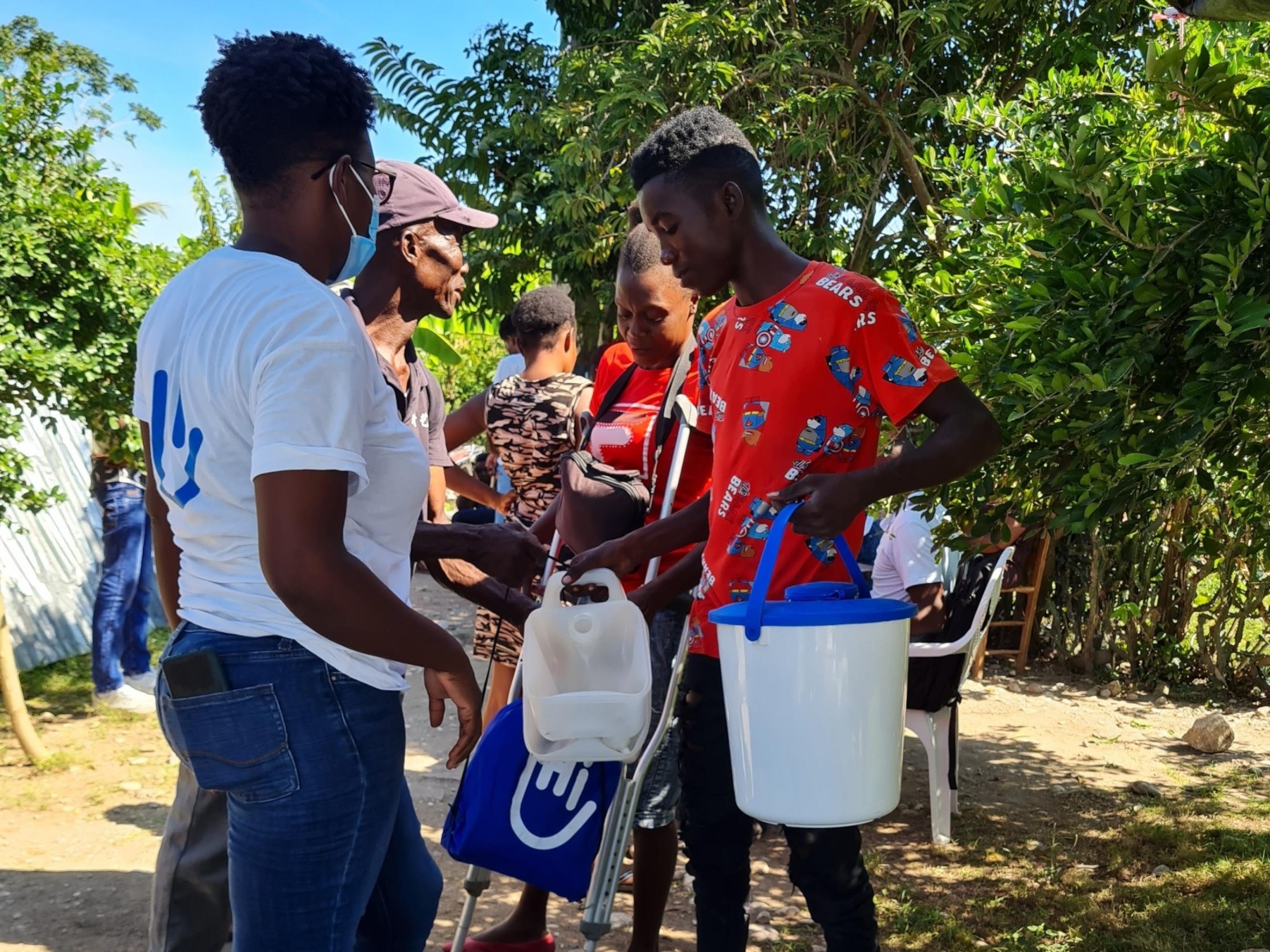Disability-Inclusive WASH in Humanitarian Action
Training Package Introduction

© F.Roque/HI
What?
This training package ‘Introduction to Disability-Inclusive Water, Sanitation, and Hygiene in Humanitarian Action’ has been designed to support trainers to facilitate learning, reflections and discussions around disability-inclusive Water, Sanitation, and Hygiene (WASH) response.
Topics covered in the package include:
- The rights-based understanding of disability in humanitarian WASH
- The IASC Guidelines on Inclusion of Persons with Disabilities in Humanitarian Action with a focus on chapter 18
- The 4 Must-Do-Actions and how to implement them in the WASH context
- The definition of universal design, accessibility, and reasonable accommodations and how to apply them in humanitarian WASH
- The understanding and importance of inclusive accountability to affected populations
- Inclusive menstrual hygiene management
- How to ensure inclusive community engagement
Structure?
The training package has a modular structure, with nine total modules. Each module contains PowerPoint presentations, facilitator guides, videos, and group works.
Depending on the training audience’s needs and time available, you are advised to select the most relevant modules and adapt them to your context.
Developed by whom?
This package was developed through an inter-agency co-creation process with Inclusion Africa, German Toilet Organization, the Global WASH Cluster, Malteser International, WaterAid, and UNICEF as part of “Phase 3−Leave no one behind!” project.
Download the modules
External links to Google Drive of the Leave No One Behind project
General Instructions
Module 1
Introduction to Disability
- Introduction to the concept of disability
- Impact of barriers to access to WASH programmes
- Intersectionality and risk
Module 2
Introduction to IASC Guidelines
- The global policy context and background of the IASC Guidelines;
- The connection between the IASC Guidelines and tools WASH actors already use, such as the Sphere Standards and relevant DI indicators;
- Key concepts of disability inclusion in humanitarian action and how these principles align with WASH sector practices;
- Practical applications for integrating the guidelines into WASH programming.
Module 3
Situating disability inclusion within the wider humanitarian landscape
- Inclusive humanitarian action & Inclusive humanitarian WASH;
- Legal and policy context;
- Who is responsible;
- What about the National WASH Cluster
Module 4
Accessibility, Universal Design and Reasonable Accommodation
- Understanding accessibility and universal design of WASH programs;
- Understanding reasonable accommodation;
- Critical success factors
Module 5
Introducing the Must Do Actions (MDAs) and the twin-track approach in the WASH sector
- The twin track approach
- Must Do Actions (MDAs)
Module 6
Inclusive WASH Project Cycle Management
- Applying the MDAs in:
• Needs assessments;
• Planning and design;
• Monitoring and evaluation.
Module 7
Inclusive accountability to affected populations
- What is accountability to affected populations (AAP)
- What is inclusive AAP
- How to apply inclusive AAP principles and mechanisms in WASH project cycle
Module 8
Inclusive community engagement in humanitarian WASH response
- Meaningful participation and consultation
- Empowerment and capacity building
- Accessible communication and inclusive contents
- Accountability and feedback mechanisms
Module 9
Disability inclusive Menstrual Health & Hygiene (MHH) Management in humanitarian WASH responses
- MHH in humanitarian contexts;
- Barriers and specific challenges
- Integrating MHH into humanitarian WASH programming.